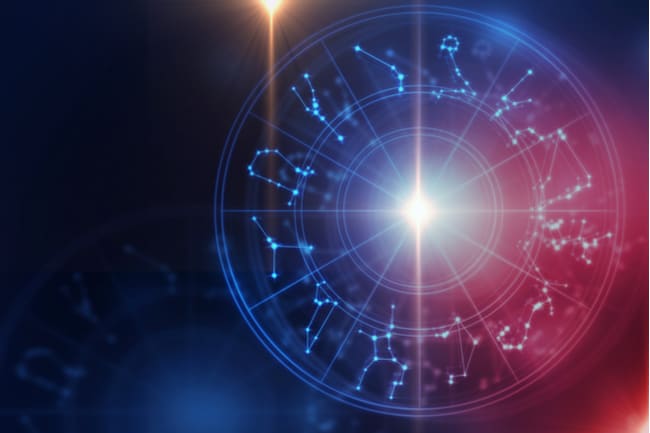Why the History of Astrology Matters

Have you checked your horoscope today? If your answer is “yes,” then you’re one of the millions of people who uses astrology. Astrology, the study of the celestial bodies as they relate to life on Earth, dates all the way back to Babylonian times. It was originally developed to help predict seasons and celestial events. Today, its most popular use is in the Zodiac calendar. But before we break down the meaning behind the Zodiac, let’s take a look at some history behind astrology — and why it matters today.
The early days
Ever since the beginning, mankind has looked to the sky to make sense of the world and the universe beyond it: days were measured around the sun, nights around the moon and every curious natural occurrence around the position of the stars in between. Archaeologists have spent years deciphering cave paintings of the lunar cycle, proof that the earliest civilizations relied on the cosmos.
In ancient times, astrology originally served as a response to the natural forces deemed beyond mankind’s control. Like earthquakes. Or floods. Before more advanced civilizations developed ways of detecting, predicting and monitoring the weather, astrology helped keep track of certain patterns based on the position of the stars. Now, of course, we rely more on technology than star charts for weather alerts, but astrology still serves an important role in understanding cycles and patterns.
The Babylonian days
The Babylonians defined astrology as we know it today by developing the Zodiac calendar. They created this calendar around 12 constellations in the Babylonian star catalog, each one representing a different position in the night sky. These 12 constellations are based on the 12 months that it takes the sun to go through a full cycle and return to its original position. Each of these constellations represents a certain sign, each associated with a particular element. Thus the earth, water, air and fire signs were born.
- Earth signs: Taurus, Virgo, Capricorn
- Water signs: Cancer, Scorpio, Pisces
- Air signs: Gemini, Libra, Aquarius
- Fire signs: Aries, Leo, Sagittarius
The Middle Ages
In the Middle Ages, astrology really began to gain some clout. In fact, it was a philosophy used by both kings and commoners alike. Even a few popes praised astrology and viewed it as a reliable and influential tool to use in decision-making. It wasn’t until the 17th century, the Age of Reason, that many began to denounce the merits of astrology.
The 20th century
Astrology experienced a surge in popularity during the 20th century. Its mystical roots intrigued many, though it served more as entertainment than education. In the 20th century, newspapers began to print the daily horoscopes we know and love.
What about today?
Today, like in the Middle Ages, astrology still has its super-fans and its skeptics. Though not scientifically proven to predict earthquakes or successfully guide leaders through battle, there is value in watching the night sky and noticing patterns — both internal and external. After all, you never know what might be written in the stars ...
Citations:
Rasnic, Matt. (2018, May 10.) The History Behind Astrology.
http://idsnews.com/article/2018/05/wkwhatisastrology
McCarry, Sarah. (2016, November 16.) The Not-So-Scientific Scientific History of Astrology.
https://refinery29.com/history-of-astrology
